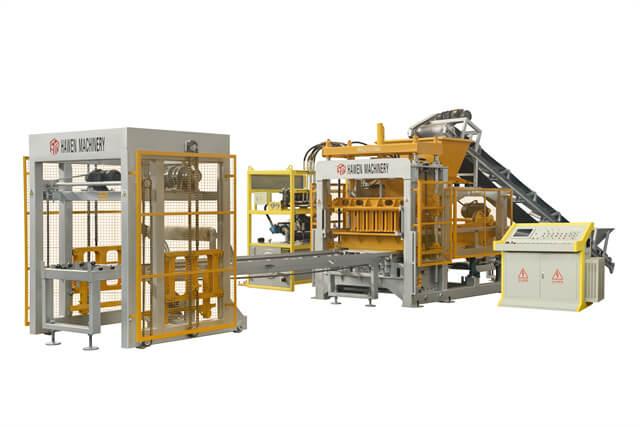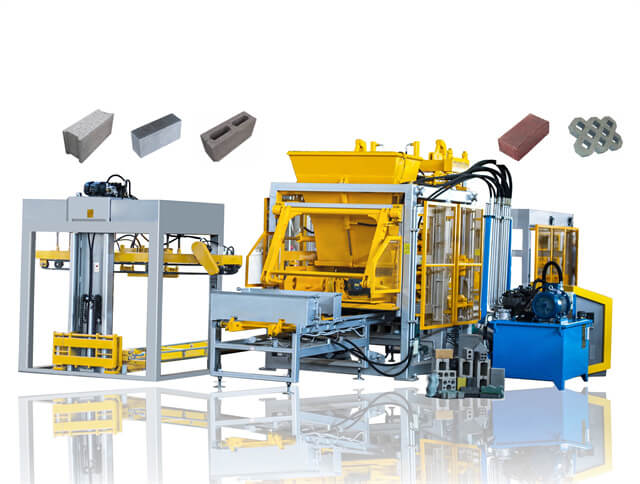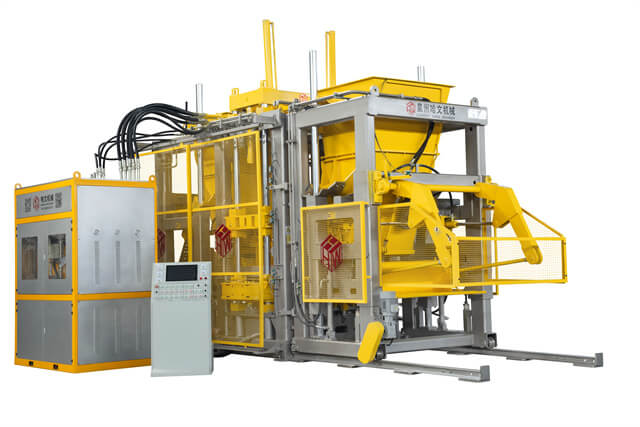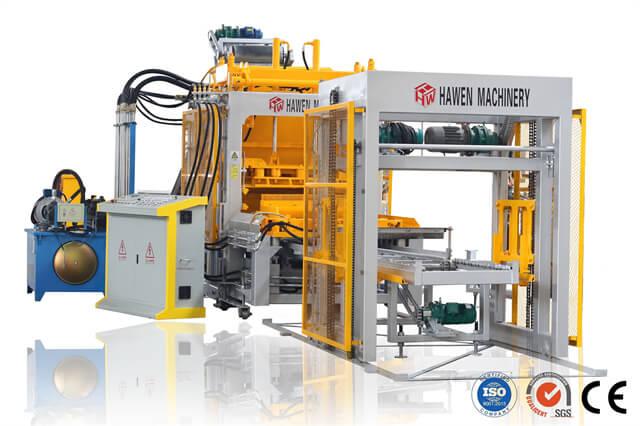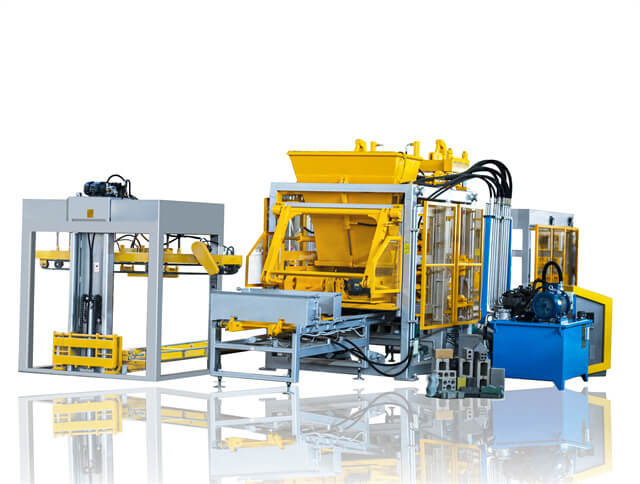Author:HAWEN Block MachineFROM:Brick Production Machine Manufacturer TIME:2024-04-09
Block machine price refers to the cost associated with purchasing and operating a block machine. Block machines are essential equipment used in the construction industry for manufacturing various types of blocks, such as concrete blocks, paving blocks, and hollow blocks. The main purpose of these machines is to efficiently produce high-quality blocks that are widely used in building construction. Understanding the main structure and functions of block machines prices is crucial for those who are involved in the construction industry or considering investing in this equipment.
The main structure of a block machine price generally consists of several key components. These include the hopper, conveyor belt, mold, hydraulic system, control panel, and power supply. The hopper is used to store and feed the raw materials, such as cement, sand, and aggregates, into the machine. The conveyor belt transports the materials to the mold, where they are compressed and shaped into blocks. The hydraulic system provides the necessary pressure and movement to compress the materials, while the control panel enables operators to monitor and adjust the machine's settings. Lastly, the power supply ensures the machine's operation.
The primary function of a block machine price is to produce blocks efficiently and effectively. By automating the block production process, these machines can significantly increase productivity and reduce labor costs. They have the capability to manufacture blocks of different shapes, sizes, and designs, depending on the specific requirements of the construction project. Moreover, some advanced block machines are equipped with features such as vibration systems, which enhance the density and strength of the blocks, resulting in better overall quality.
Prior to the block production process, the raw materials need to be mixed thoroughly to ensure the uniformity of the mixture. The block machine price often includes a mixer, which combines cement, sand, and aggregates with water to form a consistent and workable mixture. The mixer plays a vital role in achieving the desired quality of the blocks, as it determines the composition and texture of the raw material mixture.
Once the raw material mixture is obtained, it is fed into the block machine through the hopper and conveyor belt. The mold, which is customizable according to the block's specifications, compresses the mixture under high pressure to form the desired shape. The hydraulic system facilitates this compression process, ensuring that the blocks are compacted tightly and evenly. As the blocks are formed, they are typically placed on pallets or trays for easy transportation and handling.
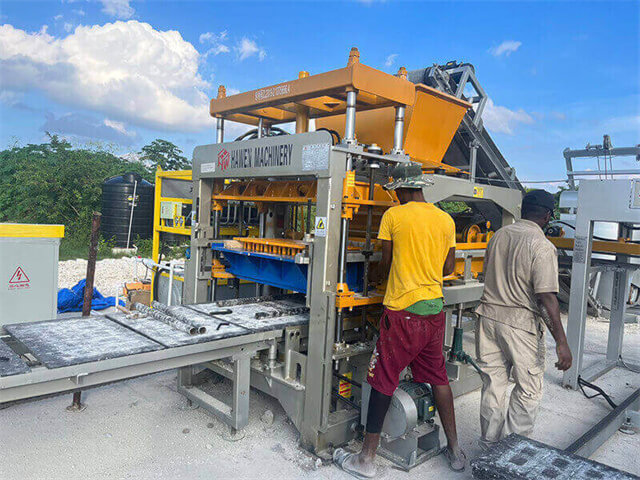
After the block formation, the newly produced blocks need to undergo a curing and drying process to achieve the required strength. Depending on the type of block and the specific project requirements, this process can take several days or weeks. Proper curing allows the blocks to gain their full strength and durability, enhancing their overall performance in construction applications.
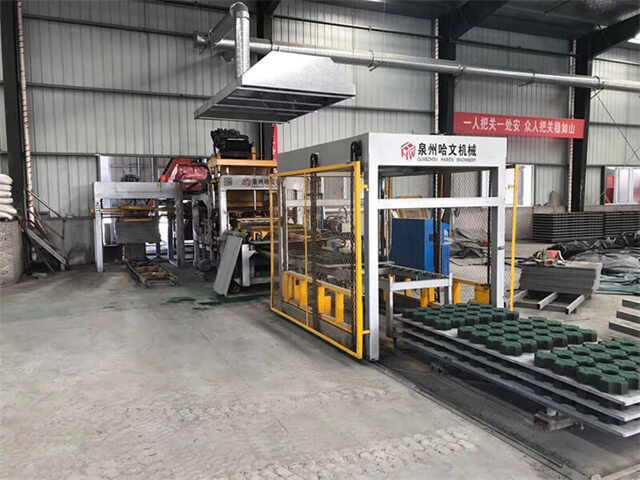
Ensuring the quality of the blocks is essential to meet the industry standards and customer expectations. Block machines often incorporate quality control mechanisms, such as sensors and monitoring devices, to assess the product's quality during the production process. Additionally, periodic inspections are carried out to verify the dimensional accuracy, strength, and appearance of the blocks before they are released for usage.
To ensure the longevity and optimal performance of a block machine, regular maintenance and servicing are required. This includes cleaning the machine, lubricating moving parts, inspecting electrical connections, and replacing worn-out components. Adhering to a proper maintenance schedule helps prevent breakdowns, reduces downtime, and extends the overall lifespan of the machine.
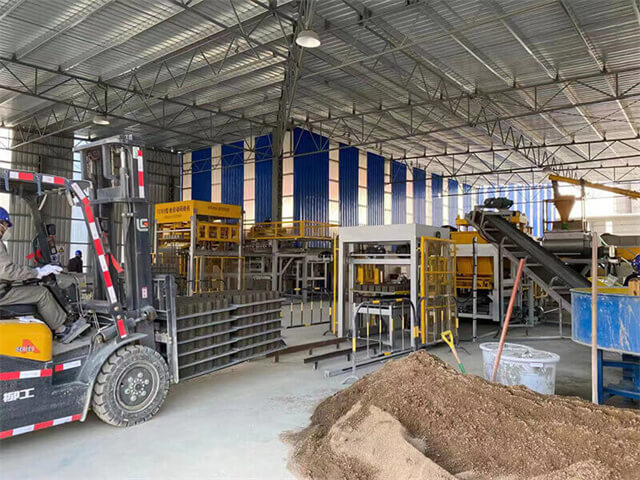
When considering the purchase of a block machine, various cost factors need to be taken into account. These factors include the initial investment cost, operational expenses (such as labor, electricity, and maintenance), and the potential return on investment. It is crucial to evaluate the machine's capabilities, production capacity, and reliability against the project requirements to determine its cost-effectiveness in the long run.
In conclusion, the main structure and functions of block machine prices play a significant role in the construction industry. These machines efficiently produce high-quality blocks and contribute to the overall progress and quality of construction projects. By understanding the various components and processes involved, stakeholders can make informed decisions regarding the purchase and operation of block machines, ensuring optimal productivity and profitability in the long term.
